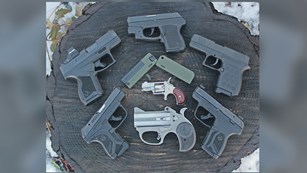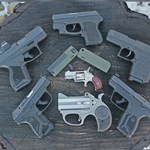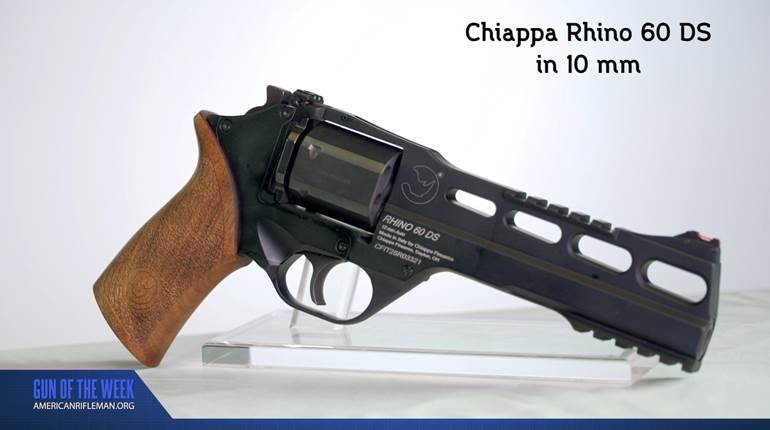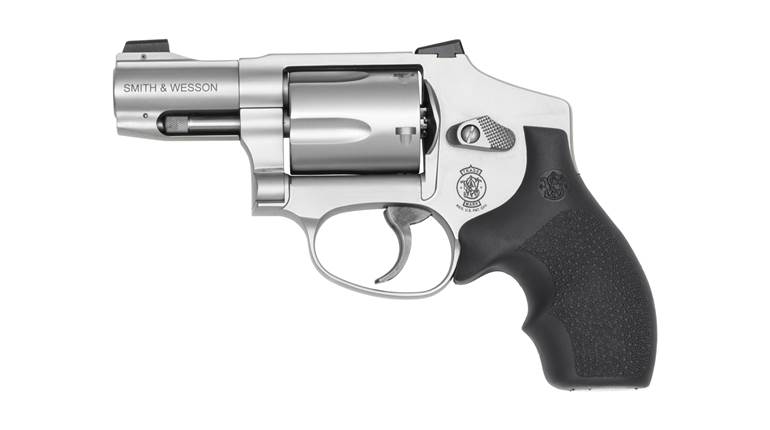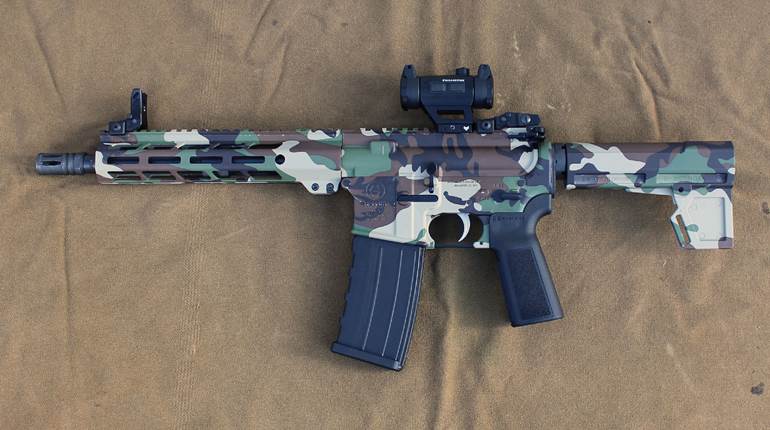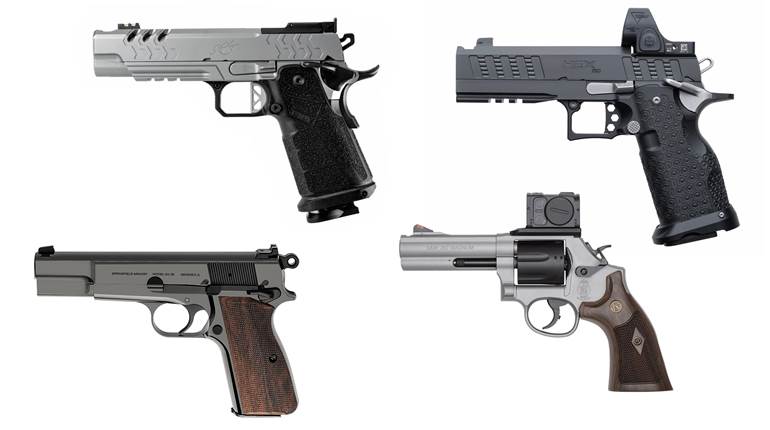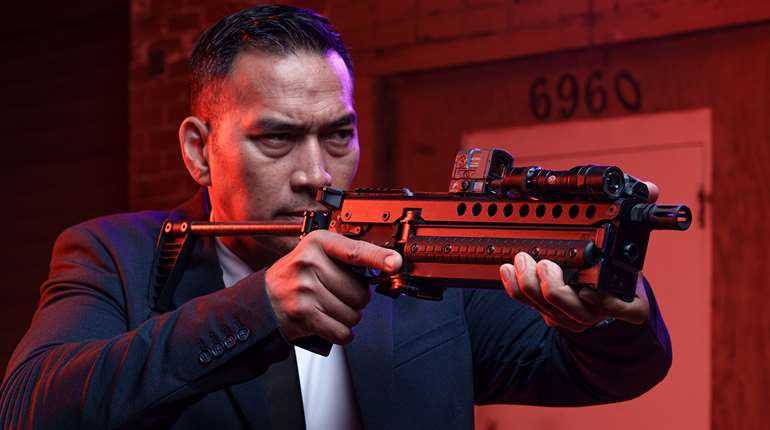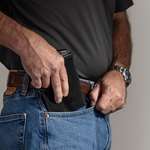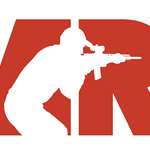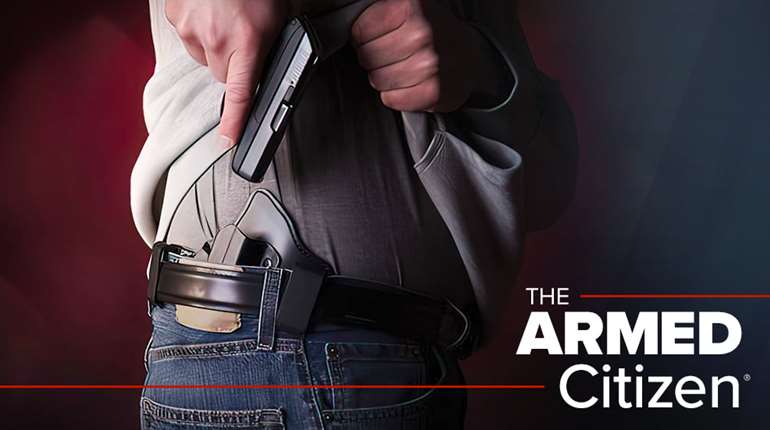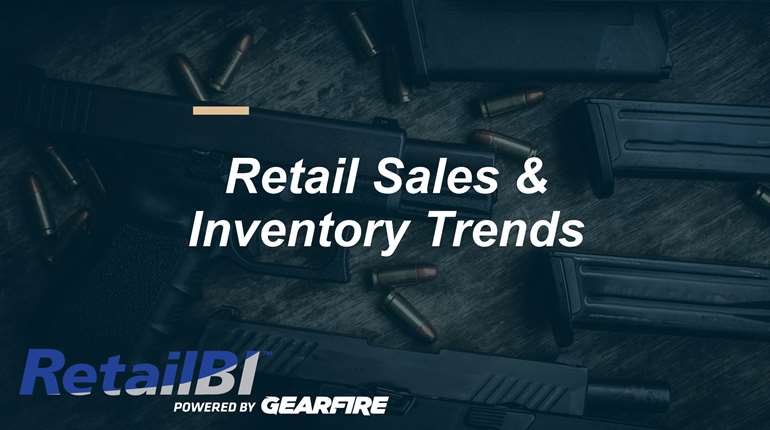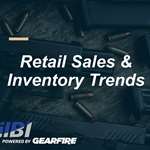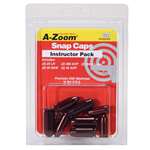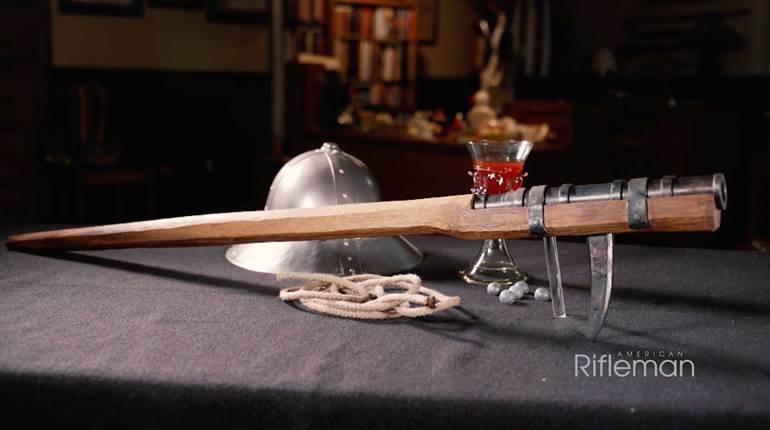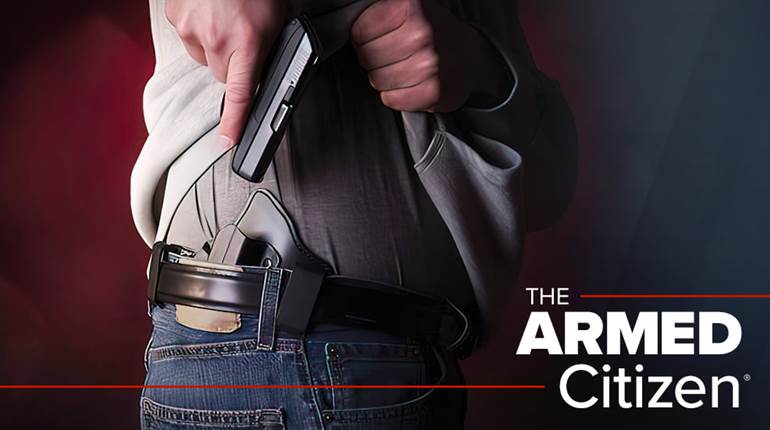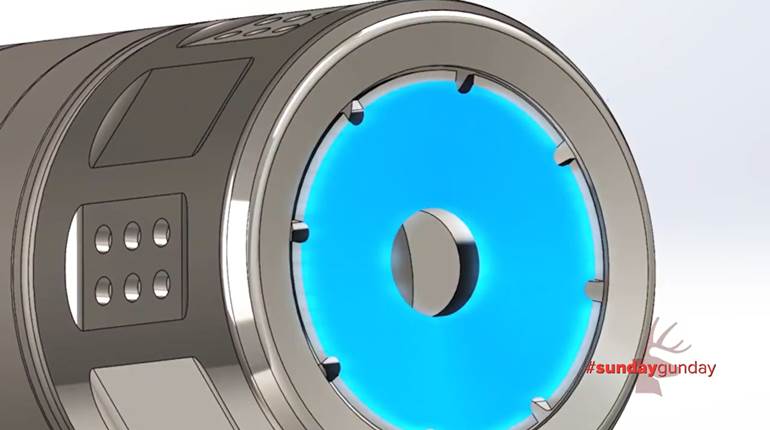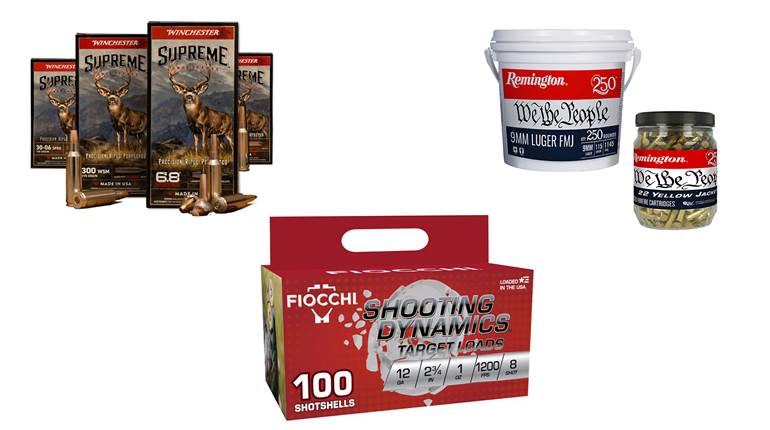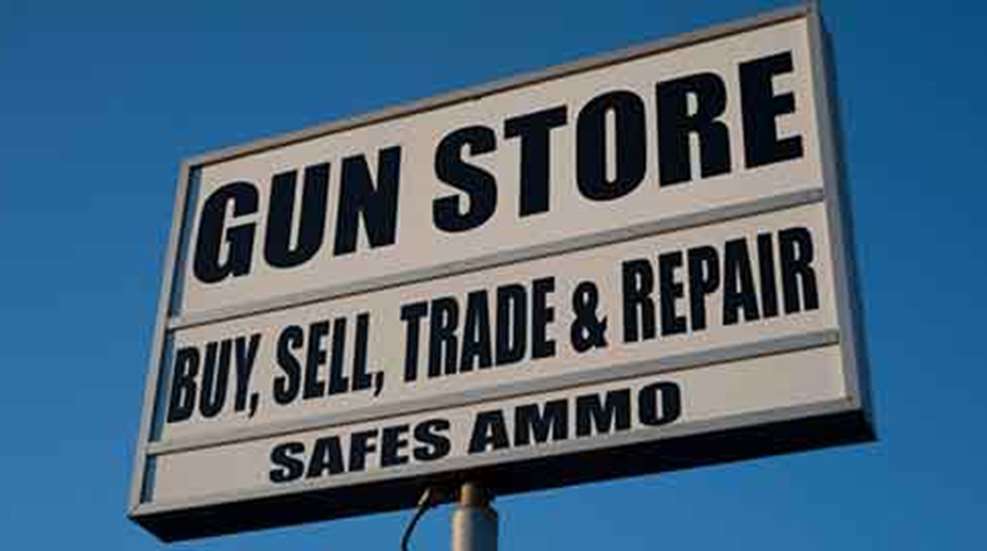
Handguns are one of the most flexible and portable platforms available to the modern shooter. But with the vast number of options available, ranging from tiny pocket pistols to massive hunting revolvers, choosing the first one can be intimidating for someone new to the sport. Here are a few tips to help save you time, money and frustration when making a first-time handgun purchase:
1. Identify the Handgun's Primary Purpose
Some handgun models can fill multiple roles while others are specialized for certain tasks. Are you looking for a handgun that will be carried concealed on a daily basis or to be stored in a lock box near the bed for home defense? Will it be used for plinking at tin cans or does it need to have competition-grade features and accuracy? If it's a revolver for hunting, should it be chambered for ammunition that's appropriate for small, medium or large game? Having a clear idea of how a pistol or revolver will be used most of the time will serve to narrow the options down to a reasonable number and help the sales staff of your local gun shop to understand which models best fit your need.
2. Shop Around for the Best Price
When the right handgun for your needs is in stock at your local gun shop, how do you know if you're getting a good deal? The Internet makes price checking a much easier process than it used to be. Start by finding the manufacturer's suggested retail price (MSRP) on the company website. This posted price is usually a little higher than what most dealers will charge for new merchandise. If a gun's price tag is marked with a dollar amount that’s the same or higher than the MSRP, then there is a good chance you can find a better deal elsewhere. The exception to the MSRP rule of thumb is when there is a high demand for a particular model (as there was for AR-15s for a couple of years). In cases like this, plan on seeing prices that are higher, sometimes much higher than MSRP.
A quick and easy way to price check is to visit firearm sales websites like Gunbroker.com, GunsAmerica.com and GunWatcher.com. Both sites feature new and used firearms sold by individuals and retailers. Run a search for the model you have in mind to see a full range of prices from around the country. An important thing to remember with online pricing is that the numbers shown at the top of the listing may not include the shipping and transfer fees shown at the bottom of the listing. If adding up all the costs brings the price of an online purchase close to that of your local shop, then you might as well buy locally and help keep your home town shop up and running.
3. Avoid ‘Mystery Metal’ Handguns
There is a tremendous temptation to save as much money as possible when buying a gun because, let's face it, they are expensive. But even though they can seem like a good deal at the time, cheaply constructed knock-offs with strange names and components constructed of unidentifiable metals are rarely a good investment. For example, an associate of mine picked up a little pocket semi-auto that looked just like a better-known name-brand version. I hadn't heard of the manufacturer before, so I looked up the company online. It took some digging to find out that the small caliber pistol in question was a collector’s item, though not in a good way. The company only produced about 5,000 guns before going out of business because their pistol frames demonstrated a tendency to chip and crack in a most inconvenient manner. So now he owns an interesting piece of shooting industry history that is of no practical use to him. Always do your homework before laying down cash for a gun.
4. Be Careful Buying Used Handguns, Especially For Self-Defense
Shopping for used handguns can be a great way to save money but it has to be done cautiously. Some used guns are sold to fund a new gun's purchase or because the owner needs the cash. Despite a bit of wear and tear, or a few scratches, these are the trustworthy gems that have plenty of life left in them for a reasonable price. But some used guns are pawned off or traded in because they are lemons. Most reputable shops have someone on staff who is qualified to give used guns a function check before taking them into their inventory. But several problems can slip past a visual inspection, including poor accuracy, ammunition reliability issues, and malfunctioning internal components.
If you are going to buy a used handgun, especially for self defense, then learn how to function-check the firearm you have in mind or lean on the skills of a gun geek you can trust. If the used pistol or revolver is given a clean bill of health at the gun shop, then find out what the return policy is before you buy it. Some dealers will allow for a refund or full trade-in value if one of their used guns turns out to be a lemon. Others follow a strict as-is, you-bought-it-you-own-it policy. Before shooting any used firearm, it should be dismantled, inspected, cleaned and lubricated according to the manufacturer's instructions. If it passes this inspection, it should then be test-fired thoroughly with practice and defense-grade ammunition. If it performs reliably on the range, then it is ready to be cleaned once more and then carried or staged for self defense.
5. Look for Handguns Chambered in Common Calibers
Although ammunition shortages come and go, there are handgun calibers that will always be hard to find or expensive to buy no matter what the state of the shooting market may be. Exploring the nuances and history of obscure, antique, or hard-to-find calibers of handgun ammunition can be an enjoyable hobby for seasoned shooters. But for new handgun owners, who are still learning the ropes, it makes sense to stick to common calibers that are readily available in less expensive practice-grade loads as well as high-grade rounds for hunting or defensive applications. When the guy at the gun counter hands you a gun to examine, don't be shy about asking for more information related to the ammunition's cost and availability.
6. Trust What Your Hands Are Telling You
The shooting community is rife with opinions (many of which are conflicting) as to which are the “best" handguns and the “right” calibers to own. In truth, what feels like a good fit to one gun buyer will be a poor fit to someone else. One of the primary reasons for all of this debate is differences in each shooter’s hand shape, size and strength. Small and svelte grips feel awkward in big hands while chunky grips feel awkward in smaller ones. The controls, like the magazine release and safety, may be too widely spaced to be manipulated, or may be rubbing up against a knuckle because they are too close together.
Gun-to-hand compatibility is also an important factor in managing felt recoil. A poor grip fit can result in a shooter's hands feeling tired or sore in a short period of time. So trust what your hands tell you. If a handgun feels lousy or is hard to operate in the gun shop, it's not going to feel or run any better on the shooting range. The best way to avoid grip and control fit problems is to go to a range that rents guns and try before you buy.
7. Take Your Time
As I look back over two decades of handgun purchases and trades, the transactions that I regret the most are those that were made in haste. I was in too much of a hurry to take advantage of what seemed like a bargain at the time or to trade in what I already had (at a loss) to buy what I wanted next. After discussing some of these disappointing gun purchases with my older brother, he shared this bit of sage advice: “The next time you're in a hurry, just remember that the deal of the century happens every day." And he was right. Over the years, patience and pre-purchase preparation have paid off far more often than packing a quick-draw wallet to the gun shop. There will always be another good deal or a better buy down the road but it's usually an expensive proposition to un-buy a gun you don't like.





